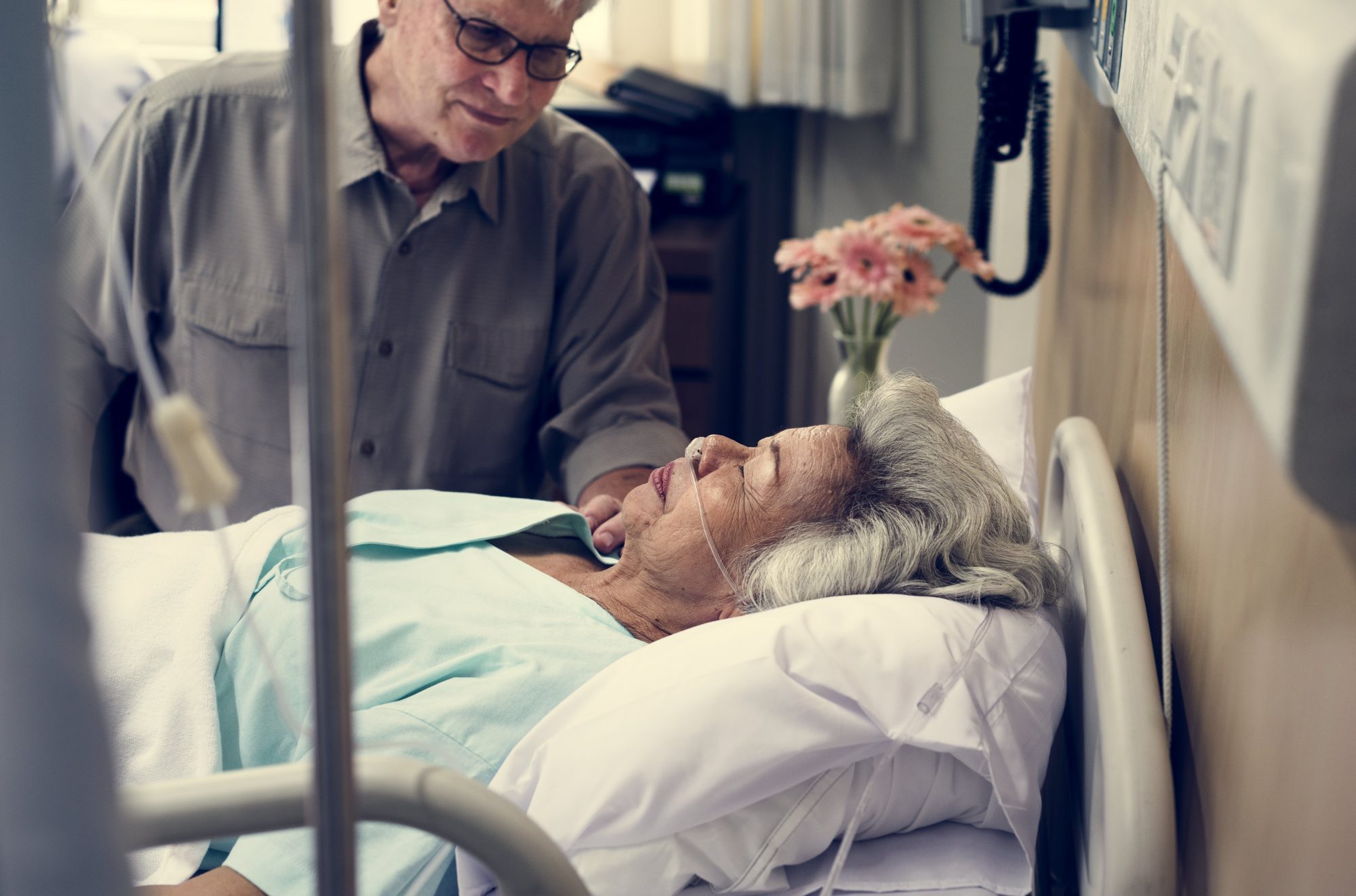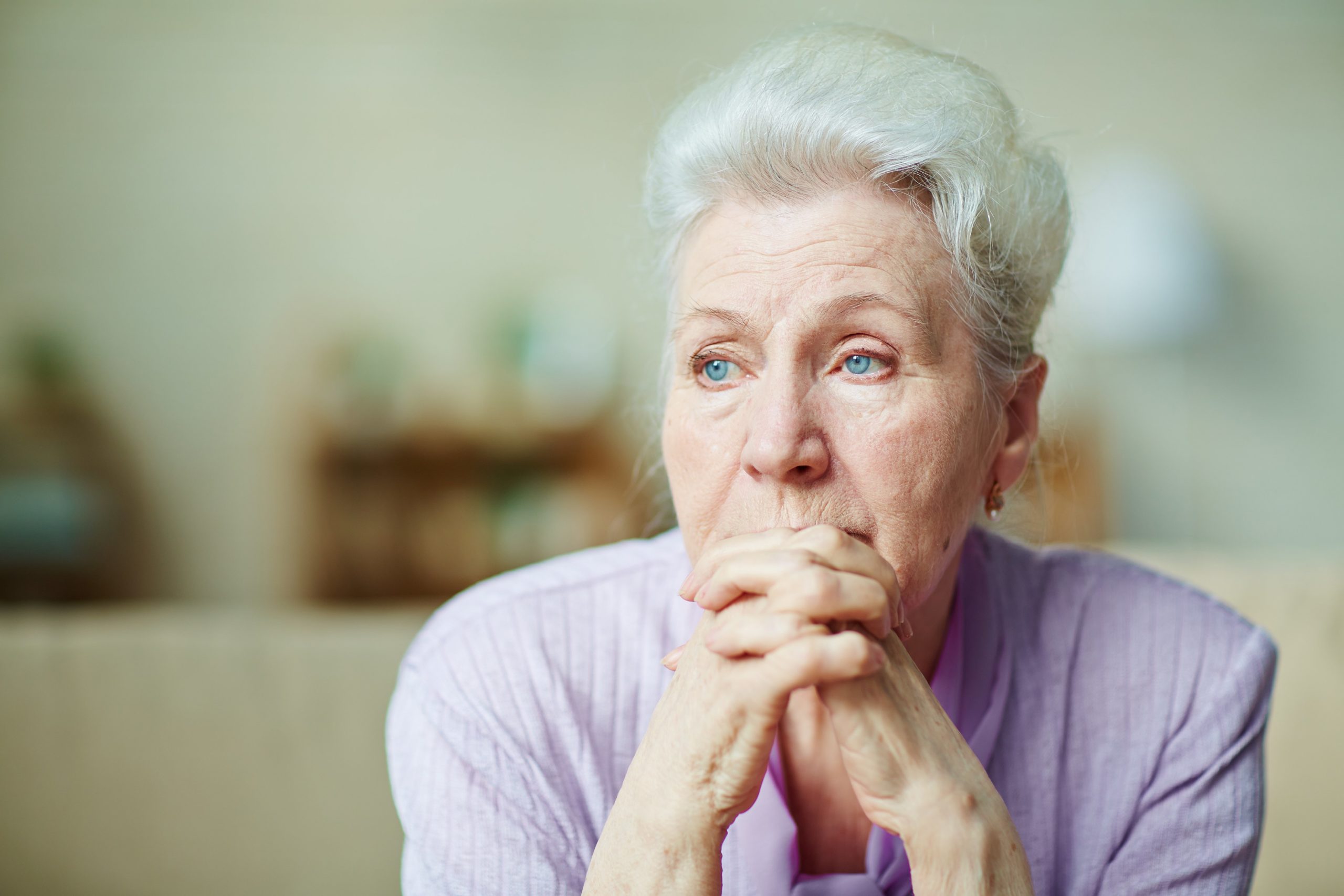As caregivers, the reality of a medical emergency is always something that lingers uncomfortably in the back of our minds. It’s frightening when someone you love is in pain or completely unresponsive. Fear can make quick thinking difficult. And your loved one needs you to be clear and decisive in the moment. Thankfully, we don’t have to be the most clear headed people in an emergency. We just need to be the most prepared.
Preparation is one of the keys to success. We’ve thought of nine things to remember when in an emergency. At the end of this article is the shortened version of this list you can print out and scan through. All you have to remember is where you put the emergency list.

OK, so your loved one is exhibiting signs of a medical emergency. You’ve already dialed 911. What do you do next?
Clearly State Symptoms
Take a deep breath. The 911 operator is not going to understand if you’re rushing. Clearly state the symptoms your loved one is displaying. If you need to do anything immediately to relieve those symptoms, the 911 operator can walk you through each step. Emergency operators are usually calm, understanding people who are trained to help people through scary medical situations every day.
Give Your Address and Phone Number (Identify Markings On the House)
Make sure the 911 operator knows your address, apartment number, and phone number. It’s also nice to give her some identifying markings for your loved one’s house—a big wreath on the door, the numbers are hard to see on the mailbox, the house is the only red one on the block, etc. This is very helpful to the EMT’s, especially if you live in a subdivision where all the houses look the same.
If you aren’t familiar with your loved ones address, it’s good to keep a 911 information packet on the refrigerator with their address. If you have the opportunity, leave the operator with your phone number in case you get cut off mid-call. This is especially important in rural areas.
Unlock the Door!
This may seem like a no-brainer right now, but it’s amazing what our brains forget when we are under pressure. Unlocking the door for the EMT’s is helpful and moments are precious when in an emergency.
Get Your Pets Out of the Way
Emergencies are confusing and frightening for humans, but also for pets who don’t understand what’s going on at all. A scared dog or cat might get under foot or act aggressively towards someone bursting into your house. Take a moment to put them away. It will save precious time.
Clear A Path
The EMT’s are more than likely going to bring a large stretcher into your house. If you can leave your loved one’s side for a moment, make sure there’s nothing obstructing the path. The more you can get out of the way of the emergency medical personnel, the more time and energy they have to focus on caring for your loved one. Again, this seems like a no-brainer, but it’s hard to remember under duress.
Bring List of Medications, Allergies, Health History, ID, Insurance Card, (Make An Emergency Packet Beforehand)
If you forget everything on this list, but one thing, remember this step! Even if you do not have a medical history, ID, or insurance card, grab your loved one’s current medications. Even if you have to throw their pill bottles into a grocery bag, this will save so much valuable time.
If the doctor does not have a list of medication, they must find out. Unless you work in the medical field, trying to remember the names of medication they take and which ones they are allergic to is difficult. This isn’t always the case, but if you are caught in this situation, the doctor may have to contact your health provider for your loved one’s medical history which can delay treatment.
Right now, your loved one may not be at risk of an emergency medical situation at all. But it’s still good to be prepared. Keep a list of your loved one’s medical history, allergies, current medication, copy of ID, and insurance information hanging on your fridge so it is easy to grab. A family member or friend unfamiliar with your loved one’s medical history can use this information in the event of an emergency.
Take Mental Note of All Over the Counter Medications, Foods Eaten, Correlating Symptoms, and Activities Done That Day
The doctor will probably want to know what happened that day. All these little pieces help him make the most accurate diagnosis of your loved one’s condition, or, if the condition is obvious (i.e. a broken bone) it will help the doctor know what medication to prescribe.
Make a mental note of where your loved one was in the 24 hours preceding the incident. What over-the-counter medications did they use or take? What foods did they eat? What activities did they engage in? If the ailment isn’t obvious, try to remember what symptoms they had during the day that correlate with what symptoms they have now. This will help the doctor figure out how long their medical issue may have been going on before it came to your attention.
 Caregivers: (If You Have Time) Grab Sweater, Tissues, Hand Sanitizer, Phone, Wallet with ID, and Vending Machine Coins
Caregivers: (If You Have Time) Grab Sweater, Tissues, Hand Sanitizer, Phone, Wallet with ID, and Vending Machine Coins
After the ambulance leaves with your loved one, you may have a few moments to gather your things before leaving for the emergency room. Here are some items to remember.
- Sweater, because emergency rooms can be very cold.
- Tissues
- Hand sanitizer
- Phone
- Wallet with your ID
- Coins for the vending machine. You might be there a while and it might be an odd hour. Most hospitals have vending machines with caffeinated beverages.
Your Loved One Is In Good Hands
Take another deep breath. As your loved one’s caregiver and advocate, it’s easy to become over-anxious and emotional. But emergency rooms are staffed with calm, well-caffeinated, and well-educated medical professionals. Your loved one is in the best possible place for someone in their condition!
Quick Emergency Checklist
- Call 911
- Clearly State Symptoms
- Give Your Address and Phone Number (Identify Markings On the House)
- Unlock the Door
- Get Your Pets Out of the Way
- Clear A Path
- Bring List of Medications, Allergies, Health History, ID, Insurance Card, (Make An Emergency Packet Beforehand)
- Mental Note of All Over the Counter Medications, Foods Eaten, Correlating Symptoms, and Activities Done That Day
- Caregivers: (If You Have Time) Grab Sweater, Tissues, Hand Sanitizer, Phone, Wallet with ID and Vending Machine Coins
- Remember that Your Loved One is in Good Hands
If you worry about your senior loved ones safety, At Home Care provides expert services and peace of mind. Request a free consultation today to get started.


 Caregivers: (If You Have Time) Grab Sweater, Tissues, Hand Sanitizer, Phone, Wallet with ID, and Vending Machine Coins
Caregivers: (If You Have Time) Grab Sweater, Tissues, Hand Sanitizer, Phone, Wallet with ID, and Vending Machine Coins
